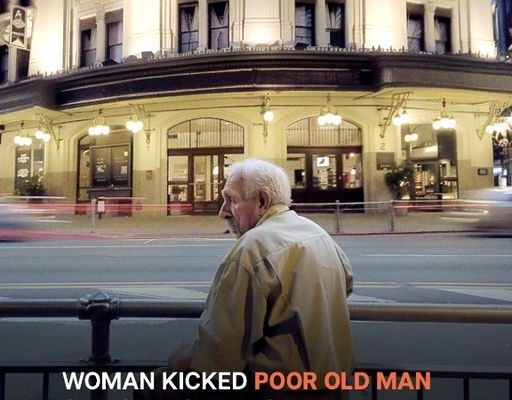Larry Hutchins, a 90-year-old entrepreneur who established the largest grocery chain in Texas, led a life that many would find enviable. He had accumulated significant wealth and earned considerable respect; however, this success had come at the expense of personal connections. He remained unmarried, had no children, and, having been an orphan from an early age, lacked any familial ties. As he grew older, a troubling question began to plague him: Who would inherit his vast empire after his passing?
Larry was reluctant to bequeath his fortune to a charity, believing it should be entrusted to someone who truly appreciated the value of hard work. He also harbored doubts about leaving it to casual acquaintances or so-called friends, having discovered that business relationships were frequently fraught with dishonesty. In search of guidance, Larry reached out to his attorney, William Carter, who assured him that he would contemplate the matter and provide further insights by the week’s end.
However, Larry felt an urgent need for resolution. That very evening, as he sat in his study, frustration overwhelmed him. He began jotting down potential heirs on a notepad, crossing out names one by one until the page was entirely blank. Then, an unexpected thought occurred to him. Perhaps the solution lay not within his social circle or family lineage, but among his employees.
The following morning, Larry donned the oldest attire he could find. He put on a shabby fake beard, took hold of a second-hand cane, and made his way to his flagship grocery store, intent on observing how people would treat someone who appeared to be destitute.
Upon entering, he immediately felt the sting of rejection. The cashier, Lincy, glared at him as if he were an annoyance. “Leave, old man,” she snapped. “This is not a place for beggars.”
“I’m merely looking for some food,” Larry replied, his voice quivering.
“You should be on the streets, not in a store like this,” she retorted, her tone icy and dismissive.
Feeling disheartened, Larry wandered through the aisles, hoping to encounter some kindness among the customers. Instead, he was met with further cruelty. A woman wrinkled her nose and exclaimed, “Who allowed this filthy man in here?” Another customer joined in.
The staff’s behavior was equally disappointing. Linda, a sales associate, approached him and instructed him to leave, while apologizing to the customers for the disruption. “You’re making everyone uncomfortable,” she whispered sharply.
Just as Larry was on the verge of surrendering and exiting, a voice emerged from the rear of the store. “Everyone, step back and leave this man alone!”
Larry turned to see Lewis, the young store manager. Lewis was recognized for his strong work ethic and modest nature, having left college due to financial difficulties. He approached Larry with sincere concern.
“Lincy, this is unacceptable,” Lewis stated with conviction. “If Mr. Hutchins were to learn of how you treated someone in need, he would be outraged.”
Lewis led Larry to a more secluded area and personally retrieved a basket. He filled it with groceries, paid for them out of his own pocket, and handed them to Larry. “Here you go, sir,” he said with a warm smile. “I sincerely apologize for how you were treated.”
Larry, taken aback, inquired, “Why would you assist someone like me when everyone else turned their backs?”
Lewis’s response was both simple and impactful. “When I began working here, I had nothing. Mr. Hutchins offered me an opportunity and even covered the cost of a small apartment to help me get back on my feet. His generosity transformed my life, and I strive to extend that kindness whenever possible.”
In that moment, Larry realized he had discovered his successor. Grateful to Lewis, he exited the store feeling uplifted.
Seven years later, Larry passed away. Shortly thereafter, Lewis received an unexpected call from William Carter, a lawyer. He informed Lewis that Larry had bequeathed his entire estate to him, accompanied by a heartfelt letter explaining his choice. In the letter, Larry recounted his disguise and the test he had orchestrated at the grocery store. He commended Lewis’s compassion and integrity, qualities he deemed vital for anyone inheriting his legacy.
Lewis, profoundly touched, assumed control of the business with a spirit of humility and a clear sense of direction. He implemented initiatives aimed at supporting employees and allocated the company’s resources to assist those in need within the community. Larry’s enduring legacy of diligence and compassion continued through Lewis, demonstrating that the genuine worth of wealth is reflected in its capacity to elevate others.



